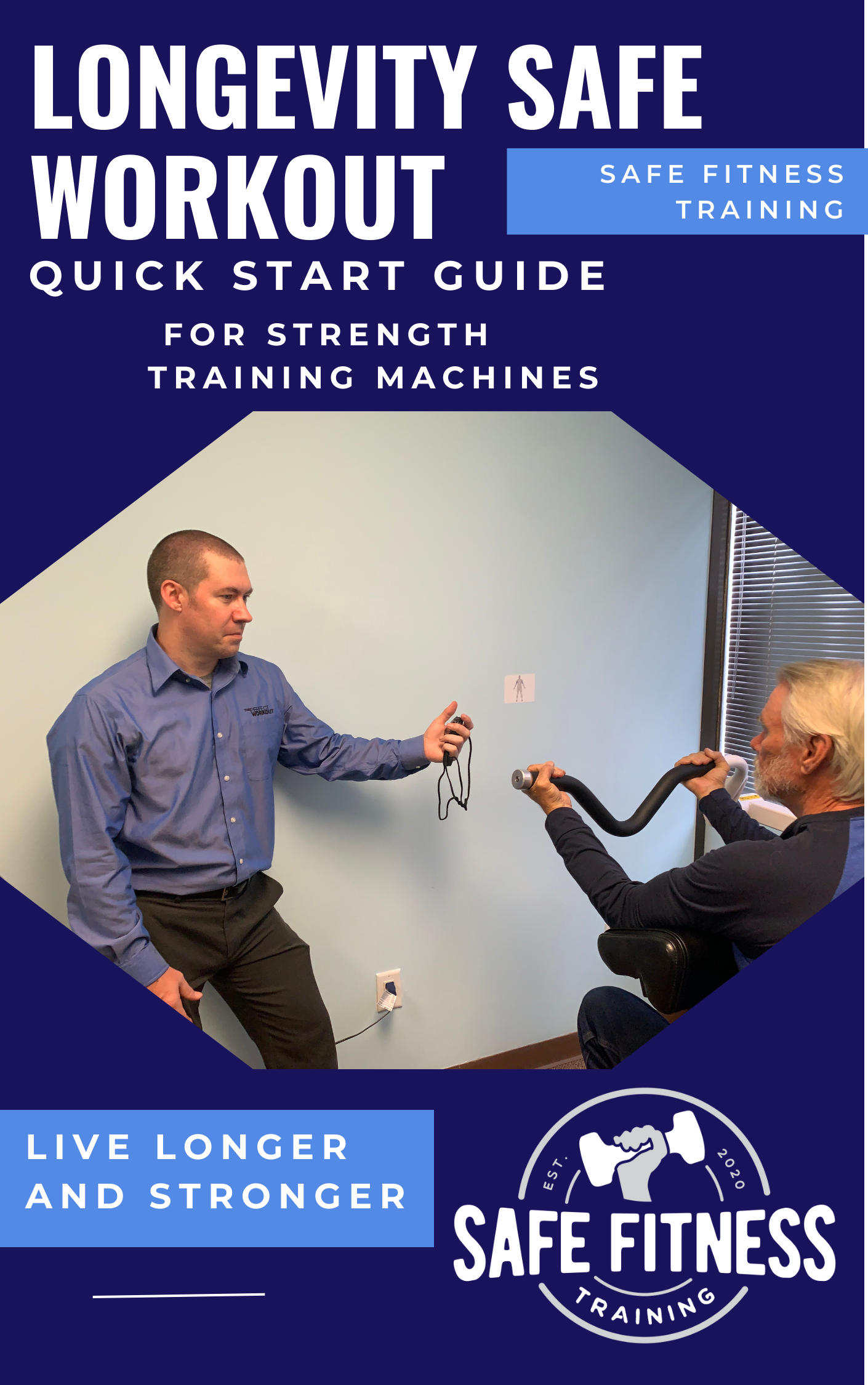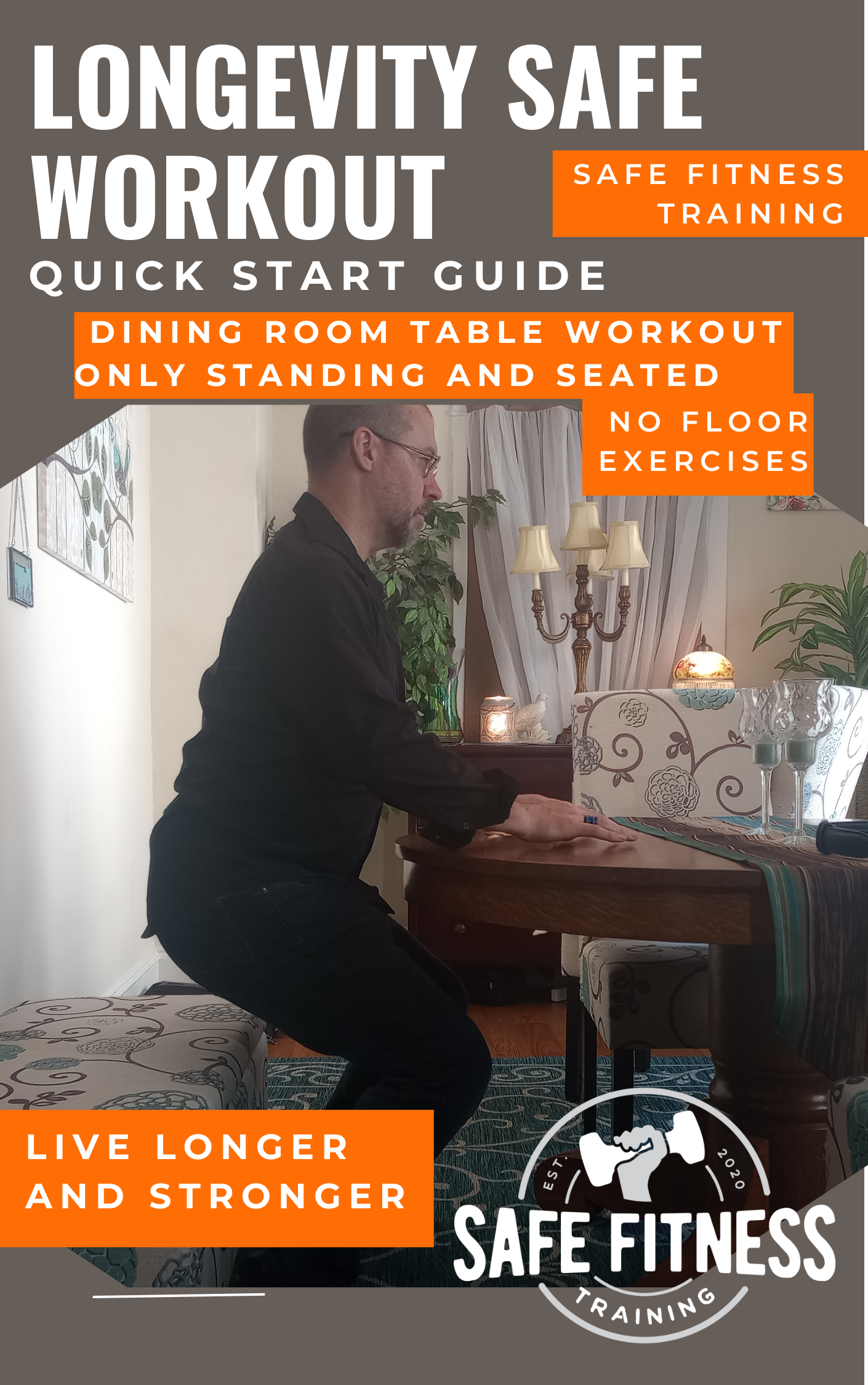Get my Free Quick Start Guide PDF and Get Started with a full video course Safe Strength Training on Gym Machines!
Free PDF Guides for At Home Exercise - Floor Exercise OR Seated and Standing Exercise! Or a video course for AT HOME Exercise!
The Dictionary Definition of Strength Training
A correct definition of strength training and exercise has yet to become 100% popularized in the mainstream fitness community. That goes without saying, within fitness there are a lot of misconceptions based upon assumptions made more than 50 years ago. Slowly over the past 15 years or so you can look at the articles on pubmed.org beginning to point to the scientific approach to fitness, based upon real evidence, research, and trials.
Merriam-Webster's dictionary definition of strength training is: “a system of physical conditioning in which muscles are exercised by being worked against an opposing force (as by lifting weights) to increase strength.”
That's easy enough to understand, strength training is putting force upon the muscles to allow them time to fatigue and increase strength in the rebuilding process in the days to come. This definition is the most simplified explanation of strength training but it doesn't cover the most important aspects of the process. There is also a huge spectrum of effectiveness over what will cause the maximum amount of muscle growth in the shortest amount of time. Simply this: not all strength training is created equal.
All modern scientific research leads to the conclusion that high intensity strength training sessions (for about 20 minutes twice a week) can be highly superior in terms of results than lifting light weights every day for two hours at a time. Why is this? The weights have to get the muscles to change into their repair state. And the closer we can get the muscles to absolute fatigue, the further we are able to flip that switch over to the repair state in the muscles, which always builds more muscle mass. More intense strength training stimulus = better results. So we DO need a better definition of strength training. We're getting to it, keep reading! :) In the meantime, here are just some of the benefits of strength training .
The Dictionary Definition of Exercise
Now that I've given a more detailed definition of strength training I want to spend just a short time talking about the definition of exercise. Mirriam-Webster's dictionary definition of exercise is: “bodily exertion for the sake of developing and maintaining physical fitness”.
This is such a broad definition that doesn't fully explain what exercise should be called based upon the science of improving the body. There is a lot missing in that definition. When we take the science into mind then we are able to understand that the improvement of the muscular system is what leads to the greater development of the cardiovascular system, immune systems, lungs, and increasing metabolism.
By looking at all the research, it has helped me to understand that I define exercise in a very specific way now. Exercise MUST be more beneficial than it is harmful. If you ask Google what percent of runners get injured it will tell you 80%. That's really bad odds in my opinion, and since I quit running I've never looked back. Running can't be effective exercise if it causes so many injuries, it's literally hurting more than helping.
Ken Hutchins Bravely Gives a New and Proper Definition of Strength Training and Exercise
Ken Hutchins is a revolutionary figure in the fitness community, bravely embracing the scientific perspective of fitness in a sea of misinformation dated from years past. See, the productive and rejuvenation qualities that come from safe strength training to complete muscle fatigue are far above and beyond any other physical exertion.
Ken Hutchins defines exercise as “Exercise is a process whereby the body performs work of a demanding nature, in accordance with muscle and joint function, in a clinically-controlled environment, within the constraints of safety, meaningfully loading the muscular structures to inroad their strength levels to stimulate a growth mechanism within minimal time.”
That may sound like a mouthful but in terms of scientific evidence it is the best description of what exercise could possibly be – looking at it in these terms, if you want to extend your life by years and years then take heavy weights and lift them to complete muscle fatigue twice a week, allowing them to rebuild in the off time. Move at very slow repetitions for maximum safety and try to fatigue within a two minute range.
In other pages to come I'll continue to explain why this is THE most powerful rejuvenation your body could go through, but don't take my word for it. I urge everyone to read the book Body by Science by Dr. Doug McGuff and John Little. Your body will thank you in the long term. For the BEST definition of strength training, look at the evidence and science in that book – Body by Science.



